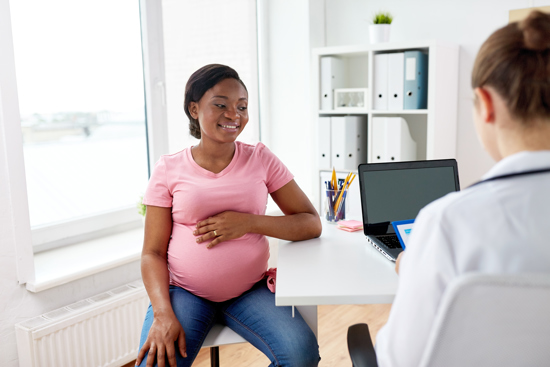What’s happening to the mother?
Your hormones are changing, and both thoughts and feelings can fluctuate greatly. You may feel anything from great joy to worry and grief. It is not uncommon to worry about having a miscarriage, your relationship with your partner, changes to your body, or your work and life situation.
The mucous membranes are also more fragile than usual. This may result in some bleeding from the gums when you brush your teeth, nosebleeds or minor bleeding from your vagina during sexual intercourse. This isn’t dangerous.
Your womb is continuing to grow, but it is still positioned safely down in the pelvis. Your pregnancy will therefore not necessarily be apparent to anyone else. If you have been pregnant before, your stomach may become visible earlier.
If you have experienced gestational nausea, you might find that this issue gradually disappears during this period. A few women are still nauseous after 20 weeks of pregnancy.
Development of the fetus
The fetus now begins to resemble a human being, and all organs have begun to form. The feet are about two millimetres long, the brain is distinct, and the structure of the heart and its four chambers are now fully developed.
The face continues to develop. The head is rounder and at this stage is as large as the rest of the body. The arms and legs are growing longer.
The female and male genital organs are starting to develop now as well. The length of the fetus from head to buttocks is about 27 millimetres.

Antenatal checks and tests
All pregnant women are entitled to antenatal care. The service is free and intended to ensure that you receive the best possible care and guidance during and after your pregnancy.
Illustration: Lev Dolgachov / Mostphotos

Pregnancy weeks 13 and 17
From weeks 13 and 14, the baby starts to move and may hiccup, but the movements are often too small to be felt. Some women start becoming aware of their baby moving as early as week 15, 16 or 17.
Illustration: Johnér Bildbyrå AB
